Otura Ojuani (Òtúrá Òwónrín)

Otura Ojuani (Òtúrá Òwónrín) is Odu number 202 in the Lordly Order of Ifá. In this sign, Olodumare urges us to take our social duties seriously and with commitment, including work, education and family, in addition to emphasizing the importance of continually perfecting ourselves in our religious practice.
Analysis and Advice of the Odu Otura Ojuani (Otura Leni):
Otura Ojuani is an Ifá sign that underlines the deep intersection between life and death, highlighting the importance of spirituality and physical care. This Odu reveals the need to be in harmony with the natural cycle of existence and the power that resides in the communication between the living and the dead. The constant presence of Egun (the ancestors) as guides and protectors is a recurring theme, underscoring the importance of maintaining a respectful and caring relationship with the deceased.
Economic Aspects:
In economic terms, Òtúrá Òwónrí warns about the risks of speculation and greed. This Odu highlights that financial losses and economic problems can arise from an overly ambitious approach to profits, especially if this involves speculation or disregard for ethical principles. The recommendation is clear: legalize and clarify matters of inheritance and assets, act with prudence in transactions and maintain a moderate and ethical approach in business.
Health:
From a health perspective, this Odu specifically mentions diseases related to the bone and joint system, such as arthritis, fractures, and problems in the synovial joints and kneecap. The focus should be on preventive care and proper treatment of these conditions. In addition, diseases such as arteriosclerosis, heart problems and diabetes are highlighted, suggesting a call for a healthy lifestyle, reducing the consumption of fats, salt and sugars, and increasing physical activity.
Religious and Spiritual Aspects:
Religiously, Otura Ojuani emphasizes the importance of adhering to Ifá principles and rituals. He is advised to receive Oduduwa and Olofin, and constant communication with Orishas such as Obatala, Eshu and Oshun. This Odu recommends maintaining respect and devotion towards elders and ancestors, reflecting a need to strengthen ties within the religious community to overcome common challenges. Respect for traditions and the correct performance of rituals is essential to avoid spiritual imbalance and attract Ire (blessing).
«Travelers from Heaven and Earth meet at the end of the day» suggests that all beings, whether divine or mortal, are united by a common destiny. Òtúrá Òwónrí highlights the inevitability of the final meeting between the spiritual and the earthly, emphasizing that our lives are intertwined in a cosmic cycle that culminates in a spiritual union, where all journeys converge.
Personal Relationships (Love and Family):
In personal relationships, Otura Ojuani warns about family conflicts and conflicts between siblings, especially related to inheritances and care for the elderly. It is crucial to maintain an environment of respect, consideration and love, not only towards the immediate family but also towards the extended community and religious sponsors. This Odu also speaks of the need for care and attention towards children, ensuring that there is no lack of love or respect in family dynamics.
"We do not know each other in the Dark, but our voices help us know each other" reflects the importance of communication in times of uncertainty or difficulty. In the darkness of our ignorance or when we face unknown situations, it is our expressions and words that build bridges of understanding and connection, allowing us to recognize and support each other.
Description and Characteristics of the Odu Otura Ojuani
Names or aliases:
- Otura Ojuani.
- Other Juani.
- Otto Leni.
- Otura Wani.
- Otura Alakentu.
- Òtúrá Òwónrín.
What is born in the odu of Ifá Otura Ojuani?
- Family mourning.
- Let the dead see in the dark.
- The power of life.
- The head praying with cotton leaves.
- May the vital parts of the body be prayed for in the prayer of the head.
- Let the legs support the body.
- Synovial fluid and patella in humans.
What does the Otura Ojuani sign talk about?
- The astral vehicle speaks. Communication between the dead and the living.
- Eshu is given a cornet.
- The strength to support the body is lacking.
- The person breaks his legs.
- There is an EGUN that can revert to the inverted person.
- Talk about Abikú.
- The person wants to change their life.
- Otura Ojuani speaks of a person who died without testing.
- In this Odu the following Orishas speak: Obatala, Eshu, Oshun, Oduduwa, Osanyin, Egun, Ori, Olodumare, Olofin and Yemaya.
Otura Leni points out:
- It is said that we are born to die later.
- Herbs of Odu Otura Juani: prodigiosa, tete nene, laurel, ateje (these herbs are used under this sign for baths and cleansing).
- Herbs of the Odu: Cotton, white piglet, prodigiosa, laurel and cardi.
Recommendations:
- The head prayer must be done by a Santero when an aleyo is seen in divination.
- The Ebó of this Odu must carry sand and 2 stones, and is set to Olorun (Sun). Then, the officiating Awó must wash his head with Omiero made of cotton, white pigweed and prodigious leaves.
- To receive Oduduwa and Olofin.
- Eshu is given a piece of cane brava to resolve situations.
- Send the aleyo to wash his head with Ifá herbs and give thanks to YEMAYA and receive her.
- In this Odu, a white rooster is given to EGUN and crowed to him.
- Stick to the old to avoid failure.
- Receive the warriors and attend to OSHUN.
- Avoid speculation in the market to facilitate buying and selling.
You may also like: Sign of Ifa Ojuani Alakentu
Sayings of the Odu of Ifa Otura Ojuani:
- The legs are missing to support the Body.
- Do not leave Camino por Vereda.
- We do not know each other in the Dark, but our voices help us to know ourselves.
- If a Child does not know his mother, the Earth is not Right.
- Travelers of Heaven and Earth meet at the end of the journey.
Ethical code:
- The Awó learns alongside the old.
Meaning of the Sign of Ifa Otura Ojuani
Otura Ojuani addresses death as an essential element of the cosmic order and highlights the importance of both spiritual and physical consciousness. This Odu emphasizes communication between the living and the deceased, marking the beginning of family mourning and the practice of watching over the deceased. He also highlights the need for people to be more attentive and loving towards their children.
The sign reveals the birth of the power of life, which allows humans to prolong their existence on Earth, and underlines the importance of head prayer (KOBO-ORI), especially with cotton leaves, to protect the vital parts of the body. In Otura Ojuani, a decrease in the forces necessary to support the body is observed, as well as consequences of fractures in the legs that require special prayers at the foot of OBATALA with two candles.
This Odu also mentions the influence of EGUN (spirits of the dead), including a specific case where the person could change their sexual orientation due to the influence of an EGUN who was homosexual in life. To counteract this, an Oparaldo ritual is performed on the mountain, and at the end, birdseed is dispersed over the Oparaldo to completely free the person from this spirit.
Furthermore, OBATALA granted the legs what they desired, but then they were dissatisfied and were cursed in the Odu OGBE YONO. Finally, Otura Ojuani addresses family conflicts, especially about inheritances, and highlights the constant presence and conversation with EGUN in this Ifá sign.
Ifa Otura Ojuani (Leni) says:
In Otura Ojuani (Alakentu), Ifá warns us about the multiple instabilities that affect our society, from the work and economic sphere to the family, highlighting the loss of tranquility and the emergence of serious economic problems due to debts associated with properties. Olofin points out the mourning that overwhelms families and society in general, caused by wars, terrorist attacks and the loss of public figures, along with conflicts over inheritances and usurpation of rights. This Odu also highlights the neglect and abuse towards the elderly and family conflicts generated by the lack of respect and consideration.
Orunmila emphasizes that financial speculation will lead to failures and irreparable losses, while the current socioeconomic situation predicts an increase in juvenile delinquency and warns of complications in immigration procedures. Furthermore, a possible alliance between nations against a common enemy is anticipated.
On a more personal level, it is revealed that dreaming about a deceased father indicates a coming blessing, highlighting the importance of attending to one's ancestors and performing specific rituals such as the Oparaldo to free oneself from attached spirits. Ifá also recommends taking care of physical and spiritual health, such as praying the head with cotton leaves, to maintain or restore personal balance.
Advice on Ifa consultation or (divination):
- Legalize all documents in relation to inheritances, wills and assets.
- Youth must not be dazzled by illicit enrichment
- Greater attention to the dead and spiritual problems.
- Eat in moderation and especially low in fat and salt.
- Control excess sugar intake.
- Control the habit of tobacco and alcohol consumption.
- Avoid being sedentary and exercising.
- Increase the consumption of fruits and vegetables to the daily diet.
- Take control of the economy and avoid excessive and unnecessary expenses.
- Attend and respect the elders.
You can also read: Sign of Ifa Otura Meyi
Prayer of the Odu Otura Juani (Òtúrá Òwónrín):
OTURA NI WANI OBATALA OSHANLA ORI ABA ORI LEKE NI ELESE OBORI
YEAR OLD OTUN YEAR YEAR OSI ELEGBA KE MOSU ELENI FEMERISHE OBATALA JEKUA
OTURA OWORIN OWERIN NI OWERIN OLANLA OBATALA NI ORI ASHO FUN FUN,
KAFEREFUN OBATALA IFA OLOFIN.
Suyere (Song):
ORI KOFIBORI ITUN KOFIBORI OLORUN ARELE ORI AWASHE.
Ebbos (works) of Odu Otura Ojuani Ifá:
Work by Otura Leni with Elegua: Initially, Obi Omi Tuto is offered to Elegua, communicating the details of what will be done. A sarayeye is made using three small chicks (jio jio). On the day of the work no other activities are carried out. On the third day, the sarayeye is repeated with three other chicks. The blood of the chicks is offered to ELEWA, while the bodies are given to the sea, in a prayer to ELEGBA.
Ebbo variant: In this modality, a small chick is sacrificed, taking its tongue, eyes, brain, wing tips, legs and heart. These elements are roasted and ground into powder (IYE), which is used to prepare an Inshé OSANYIN.
Oparaldo of the Ifá sign Otura Alakentu: It is done with a chicken or pullet, preferably after six in the afternoon. The ritual takes place at the foot of a tree. Subsequently, the legs of the interested party are prayed at the foot of OBATALA, with two lit candles.
Baths (EBOMISI) by Odu Otura Ojuani: A bath is prepared using cotton leaves, buttercup and buttercup. Additionally, a coconut is painted with husk, which is then presented on the head of the interested party and finally placed at the foot of a cotton bush.
You may also like: Treaty of the Odu of Ifa Oshe Sa
Patakies (stories) of the Ifa sign Otura Ojuani:
The last heir and the servant's secret
There was a king who owned a great fortune and when he died, he entrusted all his secrets to a loyal servant. He had three sons, the youngest being named Balogu. Three days before his death, the king buried all his money, instructing the servant not to reveal this secret to anyone, since he decided not to leave them anything, except what was necessary to cover expenses during his illness and some clothes.
After his death, the eldest son searched for the money without success. The same thing happened with the second child. In time, the rule passed to the eldest son, who then died, and so on, until it fell to the youngest, Balogu. Someone advised her to visit Orunmila, since she had seen her brothers who tried to govern die. Balogu followed the advice and Orunmila, after performing an Osode, revealed to him that his father had left a fortune and that the servant knew his location. He told him to make Ebó with several animals and once completed, look for the servant.
Balogu did as indicated and when he met the servant, he treated him with respect and kindness. Despite the servant's initial reluctance, Balogu's gentleness touched him over a meal, and eventually, he revealed the secret of the hidden fortune.
Explanation: This story teaches that treating others with kindness and dignity, even those who might seem less important or powerful, can lead to positive results and unexpected revelations. Balogu, unlike his brothers, managed to discover the secret of his father's fortune thanks to his respectful and considerate treatment of his servant.
It was divined for the human being
The Almighty knows those who wickedly shoot others. The people of the country know the people of the town.
Travelers from Earth and those from Heaven, we will see each other again.
Termites do not disperse without gathering. This was guessed for us humans who mourn for the dead.
The people of Earth go back to where they came from.
What are tears for?
What is pain for?
Why rise and fall?
Why fast?The one who tells us to leave is the one who asks us to return home.
What pleases us on Earth, does not please OLODUMARE.
People on Earth sit on the ground and hurt. OLODUMARE does not like it, OLODUMARE does not accept it.
Well, then if I say go, you go; if I say come, you come.
If a child does not know his father, the land is not good.
Death is what leads a child to know Heaven.
Who thinks of Olodumare?
If Eshu did not exist, who would think of the poor?
Everyone thinks of himself, they look for food and drink, mystery of the dark! A child does not know his father! Talk to me, I'll talk to you, by our voices we will recognize each other in the dark. If a child does not know his father, the Earth is not good.
Sacrifice: four white doves, four rams and 8000 cowries.
They listened and sacrificed, so that they could do a lot on Earth and they could see goodness and blessings.
Explanation: Respect for divine commands and the connection with our origins and with those around us, guide us towards a full and harmonious life. Obedience and sacrifice are paths to understanding and blessing.
This story underlines the importance of spiritual awareness and respect for higher forces and our ancestors. It reminds us that, although we individually seek to satisfy our needs, we must not forget the deepest and most transcendental aspects of life.
Otura Ojuani Ifa Traditional Nigerian
ÒTÚRÁ ÒWÓNRÍN
Èsù níí yan gìdìgbì níí yan gìdìgbì
Níí jájú òná
A day fún Àwúrèbe Ìfàkà
Níjó tí n fomi ojúú sògbérè ire
Wón ní kó rbo
Òná le là fun òun báyìí?
Wón ni ònà or là fún un
'Wón ó móo rerú wáá bá o nlé'
'Sùgbón rbo'
Àwúrèbe Ìfàkà bá rbo
Wón bá n koreé wolé
Òná la fun
Ní bá n jó ní n yò
Ní n yin àwon Babaláwo
Àwon Babaláwo n yin Ifá
Ó ní béè làwon Babaláwo tòún wí
Èsù níí yan gìdìgbì níí yan gìdìgbì
Níí jájú òná
A day fún Àwúrèbe Ìfàkà
Níjó tí n fomi ojúú sògbérè ire
Wón ní kó rbo
Kín ní or wàá fare ajéè mi nmi?
Àwúrèbe Ìfàkà
Ìwo ni o fare ajéè mi nmi
Àwúrèbe Ìfàkà
Kín ni or wàá fare ayaà mi nmi?
Àwúrèbe Ìfàkà
Ìwo ni o fare ayaà mi nmi
Àwúrèbe Ìfàkà
Kín ni ó wàá fare omoò mi nmi?
Àwúrèbe Ìfàkà
Ìwo ni o fare omoò mi nmi
Àwúrèbe Ìfàkà
Kín ni ó wàá fare iléè mi nmi
Àwúrèbe Ìfàkà
Ìwo ni or fare iléè mi nmi
Àwúrèbe Ìfàkà
Kín ní ó fare gbogboo mi nmi nígbàyí or Ifá?
Àwúrèbe Ìfàkà
Ìwon ni o fare gbogboò mi nmi
Àwúrèbe Ifákà.
Ifá advises this person to offer sacrifice to Esu. Life will please him and his things will not be bad. The roads will be open for all your good things. He wishes the good fortune of accumulating wealth.
It is Èsù who walks pompously
He paces pompously until he reaches the main road
He was the one who made divination for Àwúrèbe Ìfàkà,
On the day that I was crying for the good things in life
They advised him to make sacrifice
He asked 'Will the way be open for me?'
They assured him 'The way will be clear for you'.
'People were to bring slaves to your door for you to buy'
'But offer sacrifice'
Àwúrèbe Ìfàkà offered the sacrifice.
He started packing fortunes at home
The way was cleared for him
He started dancing and he was happy
He was praising his Babaláwo
His Babaláwo was praising Ifá
He said it was exactly as his Babaláwo had said
It is Èsù who walks pompously
He paces pompously until he reaches the main road
He was the one who made divination for Àwúrèbe Ìfàkà,
On the day that I was crying for the good things in life
They advised him to make sacrifice
Who was it that called the fortune of wealth to me?
Àwúrèbe Ìfàkà
It was you who called the fortune of wealth to me
Àwúrèbe Ìfàkà
Who was it that called the wife fortune to me?
Àwúrèbe Ìfàkà
It was you who called the fortune of wives to me
Àwúrèbe Ìfàkà
Who was it that called the fortune of sons to me?
Àwúrèbe Ifákà.
It was you who called the fortune of sons to me
Àwúrèbe Ìfàkà
Who was it that called the fortune of houses to me?
Àwúrèbe Ìfàkà
It was you who called the fortune of houses to me
Àwúrèbe Ìfàkà
Who would bring my good fortunes from now on for me, Ifá?
Àwúrèbe Ìfàkà
It was you who would bring good fortune to me
Àwúrèbe Ifákà.
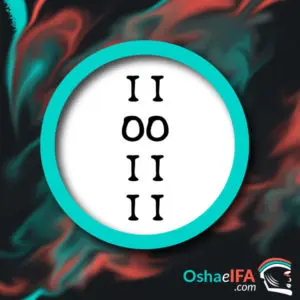

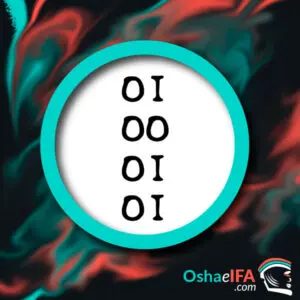
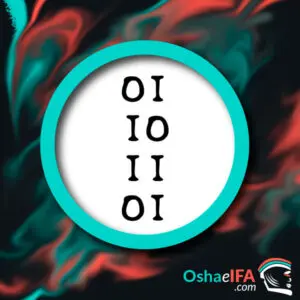
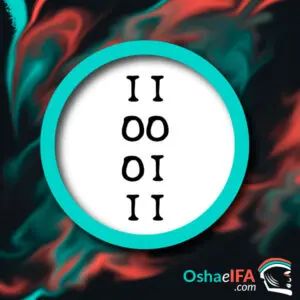
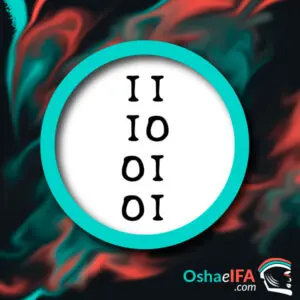
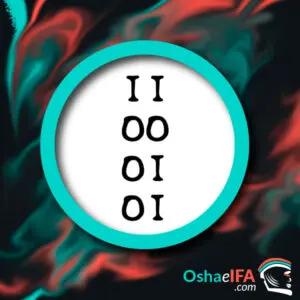

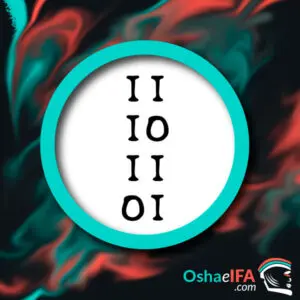
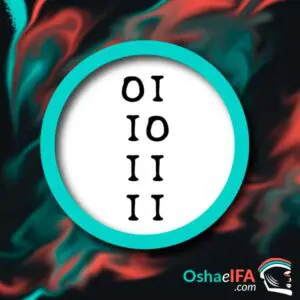
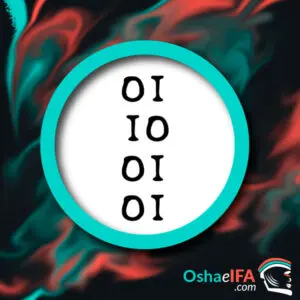
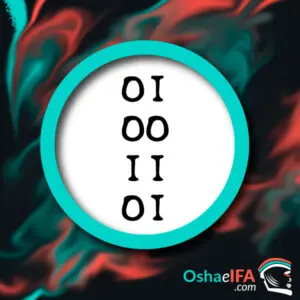



Very interesting the words he says I liked